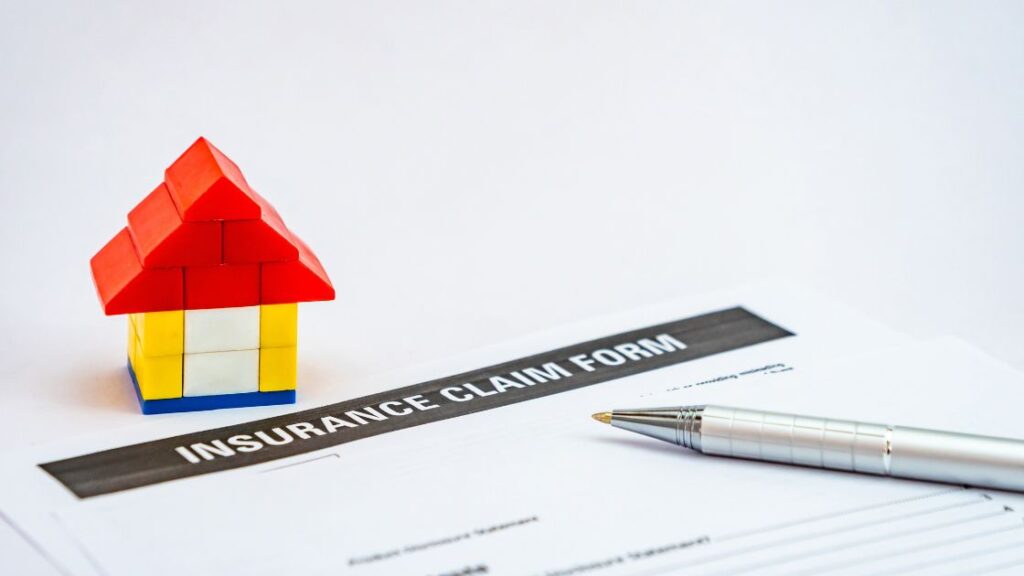Homeowners’ insurance (moreover recognized as home insurance) is not an indulgence; it is a requirement. Almost all mortgage lenders require borrowers to insure the full or fair value of a property (usually the purchase price) and will not make a loan or finance a residential real estate transaction without proof.
What does homeowners insurance cover?
Home insurance usually covers the following:
- Their apartment
- Other structures on your property
- Personal property
- Liability for injury or damage to another person’s property
You may also be able to purchase additional covers for better protection. Fire, lightning, storms, and hail are also covered by insurance companies. But it’s important to know that not all-natural disasters are covered by home insurance. For example, damage caused by earthquakes and floods is not usually covered by home insurance. You may be able to purchase separate insurance policies to protect your home and property against these types of risks.
Housing protection
One of the basic coverages of homeowners insurance is homeowners protection, which covers the structure of the house you live in (e.g. the foundation, walls, and roof of the house). Home protection can also help secure other structures associated with the home, such as a garage or patio, against certain risks.
Protection of other structures
Most homeowners insurance policies also cover other structures that are on your property but separate from your home, such as a detached garage, tool shed, or fence.
Protection of personal property
Home contents insurance doesn’t just cover damage to your home. It can also provide cover for the personal belongings you keep inside. Suppose your electronics are stolen from your home or your furniture is damaged in a fire. Personal property protection can help pay for the repair or replacement of your property if it is damaged or destroyed by an insured risk. Many insurers offer optional coverages that can help protect your belongings. For example, you may be able to purchase extended coverage for items such as jewelry, watches, and furs that are worth more than your property coverage limits.
Liability Protection
A typical home insurance policy provides liability coverage if someone who doesn’t live with you is injured on your property. Assume a guest trips over your damaged terrace step. Personal injury liability insurance can help cover your resulting legal expenses or the visitor’s associated medical bills if found guilty. Penalty coverage increases by strengthening the personal umbrella policy. Your agent can explain what options are available to you.
Coverage Limits and Deductibles
Remember that any coverage in home insurance is subject to a limit – the maximum amount your policy would pay for a covered loss. You may be able to adjust your coverage limits to suit your needs – for example, taking into account the value of your home and property and the cost of repairing or replacing them if they are damaged or destroyed by an insured risk.
In most cases, you will need to pay your deductible before your insurance benefits will cover a claim. Check your agreement papers and inform your agent to investigate your coverage limits and deductibles. You can usually customize them to suit your needs.
The protection that homeowners insurance offers can act as a safety net when the unexpected happens. A local representative can help you choose the types of coverage and limits that make sense for you.
What is included in standard homeowners insurance?

Normal homeowners insurance provides coverage for the repair or replacement of your home and its contents in the event of an accident. This usually includes damage caused by fire, smoke, theft, vandalism, or damage caused by weather events such as lightning, wind, or hail.
Does household contents insurance cover mold damage?
Mold is not usually covered by household contents insurance. Some companies will cover mold damage with restrictions, for example, if it was caused by an insured event such as a burst pipe. If mold damage is considered to be the result of a lack of maintenance, this is generally not insured.
Does home insurance cover roof leaks?
Standard home insurance policies typically cover roof leaks caused by an insured event such as a storm or hail. In this case, the policy also pays for the repair. If the cause of the leak is determined to be a lack of maintenance, the cost of repairing the damage may not be covered.
Does home insurance cover water damage?
Water damage from a burst pipe or a defective washing machine hose is generally covered by standard home insurance, with the caveat that damage caused by lack of maintenance is not usually covered. Flood insurance is not included in a standard policy, nor is backup from a blocked drain or failed sump pump. These covers may be available at an additional cost.
Does home insurance cover termite damage?
Damage caused by termites is generally considered preventable and is therefore caused by a lack of attention and proper maintenance by the homeowner. Under certain circumstances, such as B. a fire caused by a termite chewing through the wiring, some insurers may offer coverage.
Does home insurance cover theft?
Most standard homeowner’s insurance policies contain coverage for casualties from robbery and destruction, but all agreements specify the amount the insurance company pays. Expensive items such as jewelry, artwork, or collectibles may exceed the limits of a standard policy and require extra coverage.
Does home insurance cover plumbing problems?

A burst pipe or a faulty water heater is usually covered by standard home insurance unless the damage was caused by improper or inadequate maintenance. Damage caused by, for example, slow leakage over time may not be covered.
Does home insurance cover fires?
All major homeowners insurance policies include fire and smoke damage coverage. This coverage generally includes demolition, cleaning, and rebuilding costs for the main building and outbuildings and the replacement of furniture and belongings in the home. Most policies also include loss of use insurance to pay for alternative housing while your home is rebuilt.
Does home insurance cover dog bites?
If you have a dog that bites someone visiting your property, you may have some coverage under your homeowner’s liability insurance policy. Depending on your level of concern, the dog’s disposition, and your risk tolerance, you may want to consider additional liability insurance. Dog breeds do not defend by few insurance companies
Does home insurance cover tree fall?
If a tree falls on your home, garage, or other structure covered by your homeowner’s insurance policy during a storm, most insurance companies will pay up to your policy’s maximum for removal. If the tree falls to the ground without causing further damage, the costs of removal are usually not covered. If the damage is caused by an unhealthy tree, it may not be covered if it is due to a lack of maintenance.
Does home insurance cover air conditioners?
A home air conditioner or system is insured against theft, fire, storm damage, or other causes covered by a standard homeowners insurance policy, subject to the limits of this policy. Damage from wear and tear, carelessness, or mishandling is not covered.
Does home insurance cover foundation repairs?
Damage to your home’s foundation is covered if it is caused by a storm, fire, or other event covered by homeowners insurance. Flood and earthquake damage require separate policies. Damage resulting in carelessness, lack of supervision, or inaccurate structure is not covered.
Does household contents insurance cover the roof replacement?
Homeowners insurance can help you pay for your roof repair or replacement if the damage is due to fire, storm damage, or some other reason covered by the policy.
Does home insurance cover fences?
Fences and walls are generally considered structures and are therefore covered similarly to a garage or other outbuilding. Most standard homeowner insurance policies include repairs or replacements for storm damage, fire, wind, or other causes included in your policy. Things like age, neglect, or wear and tear are usually not covered. Shrubs and plantings are also covered.
How much does home insurance cost?
The cost of homeowners insurance depends on several factors, including the coverages you choose, the features of your home, and the value of your personal belongings. There may also be additional costs for additional coverages or increased coverage limits. An agent can help you select the coverages that meet your needs and also help determine if you are eligible for policy discounts.
What is NOT covered in standard homeowner insurance?

Standard homeowner insurance, also known as HO-3, protects your home against multiple perils, but there are some important exclusions. Remembering what is and isn’t covered can redeem you a lot of cash and suffering.
Earthquake and water damage
In most states, standard policies do not include earthquakes, sinkholes, and other earth movements. Earthquake insurance can be purchased as an addendum for an additional fee in all states except California. Flood insurance that includes debris flows must be purchased as a separate policy and is only available through the state’s national flood insurance program.
Other types of water damage are also excluded. If you have overflows or backflow from your sump pump, sewage system, or drains, your standard policy will not cover the damage. However, coverage may be available by adding a separate confirmation.
Maintenance issues
Proper care of your home can save you from costly repairs that your home insurance won’t cover.
Many things that are not covered by your standard policy usually result from neglect and a failure to properly maintain the property. Devastation from pesticides, birds, rust, mold, and general wear is not covered. Damage caused by smog or smoke from industrial or agricultural operations is also not insured.
If something is badly made or has a hidden defect, this is generally excluded and will not be accepted. The same applies to mechanical errors.
If your home should experience a power outage, things like food spoilage are not covered by a standard policy.
Further Exclusions
Although no one wants to think about it, damage caused by war or nuclear hazards is not covered by your home insurance. Identity theft costs are also not included, but you can purchase this coverage as an add-on.
If you own a watercraft, your policy will typically cover up to $1,000 if it’s stolen from your home, but won’t cover theft from elsewhere. In addition, most policies offer liability insurance for boats under 25 hp.
Minimal coverage
Minimum coverage exists for:
- Valuable estate – revolvers, furs, watches, utensils, and gold. A standard policy provides $1,000 for jewelry theft.
- Replacement Cost – Most policies use an actual cash value to determine the settlement amount for lost or damaged items, which takes depreciation into account. A replacement cost surcharge may be added to a policy, which pays claims based on the cost of replacing certain lost items, disregarding depreciation.
- Higher Liability and Medical Payments – Liability for third-party medical costs and legal costs to defend against claims can be astronomical. Increasing your liability insurance limits can protect your financial future.








